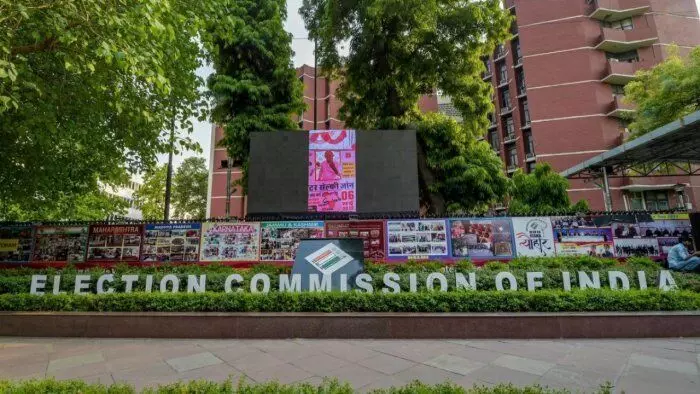Plugging the gap

There is no doubt that the temporary mechanism provided by the Supreme Court of India to appoint election commissioners is comparatively more democratic and meaningful than the one that has been applied to date. It makes sense to have the leader of the opposition and the Chief Justice of India, apart from the prime minister, on the panel recommending names to the president of India for the appointment of election commissioners. The key question, however, is whether the Supreme Court made a judicial overreach by transgressing into the domain of the legislature, and violated the basic doctrine of the Constitution. It appears not. In the first place, the Supreme Court made it explicitly clear that it has just tried to fill a legal vacuum left wide open for decades. Article 324(2) of the Indian Constitution states that the appointment of the election commissioners by the president shall be “subject to the provisions of any law” made by the Parliament. On the contrary, the appointments have been made to date by the president on the basis of a convention that entails the monopoly of the Prime Minister and council of ministers to advise the names to the nation head. It goes without saying that this convention, in itself, has been a contravention to the particular provision of the Indian Constitution. The Supreme Court, being the guardian of the Indian Constitution, is within its right to fix any constitutional breach. It is also clear that the judiciary, under somewhat quasi-legislative powers it enjoys vis-à-vis the executive, has rightly taken it upon itself to fill the void till the legislature steps in. More importantly, the Supreme Court’s intervention is not suo motu. It is in response to a bunch of petitions filed before it. Way back in 2015, Anoop Baranwal filed a public interest litigation (PIL) citing successive governments’ failure in meeting the constitutional obligation of instituting a fair, just and transparent process for the appointment of election commissioners. It pointed towards a potential bias by the government of the day, leading up to a selection process that could be “vulnerable to manipulations and partisanship.” Things have gone from bad to worse after the filing of the PIL, particularly in the past couple of years. The moral conduct of the EC has come into question multiple times. When the pandemic was peaking, and the EC allowed massive political rallies across India, leading to loss of lives, the Madras High Court had asked a stinging question — “why murder charges should not be framed against EC officials which is a telling commentary on EC functioning”? It is alleged by many, though without much evidence, that election dates might have been decided to the political advantage of certain parties. Last year, Arun Goel’s appointment as an election commissioner raised eyebrows and even provoked some to knock at the court’s gate. The “tearing hurry” with which his appointment was made left little doubt about the impartiality of the council of ministers! We never tire of praising the names of legends like Sukumar Sen and TN Seshan for the contributions they made in strengthening the election process in India and raising the bar of the standard of their office. In doing so, people forget what it took to produce commissioners of such high calibre. Those were flashes of individual brilliance and integrity — something which is lacking glaringly in the present day and age. Apparently, thanks to the council of ministers’ monopoly over advising names to the president, a negative ecosystem has been created where loyalty to the political class is prioritised over professional independence. This ecosystem obstructs the path of individuals like Sen and Shesan, whom the country needs badly. Recognising the gravity of the interim intervention made by the Supreme Court, and maintaining its own dignity, the Parliament should come out with a law in this regard — not to undo the deeds of the Supreme Court but to improve and refine it.



